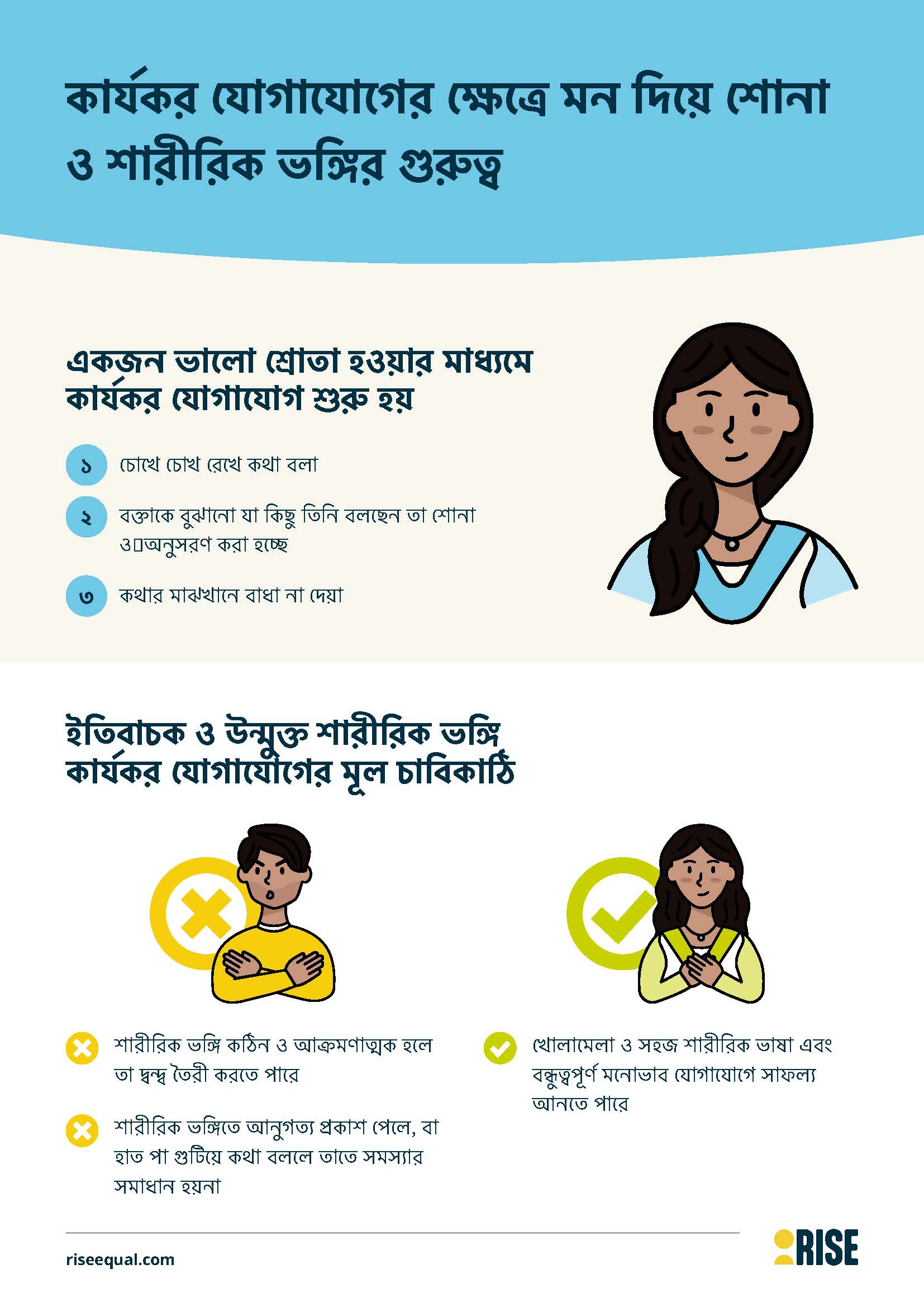


A set of six posters which provides information about communication, relationships, gender, stress management and preventing and addressing violence and harassment in the world of work. The posters follow the RISE Respect curriculum and can be used during training or directly by factories. Posters are available in Bangla and English.